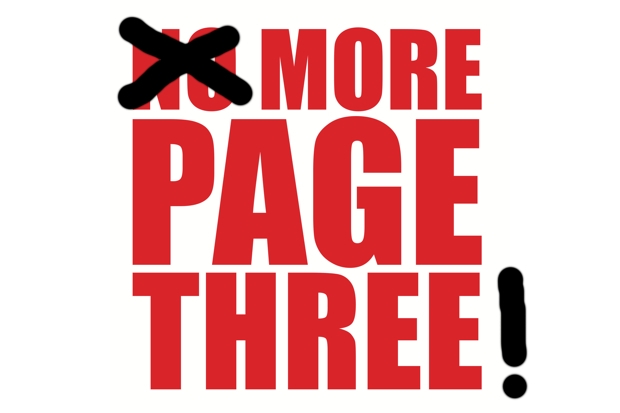The Sun was being widely credited last night with having pulled off a brilliant bit of trolling, first appearing to kill off Page 3, then resuscitating it a week later. If the paper’s intention was to make its feminist critics look ridiculous, it succeeded. The triumphalist reaction of the anti-Page 3 campaigners, patting themselves on the back for having achieved a tremendous victory, now looks very silly indeed. A good example is this tweet by the Labour Party, quoting its glorious deputy leader:
But was that the Sun’s intention? I’m not so sure. One of the reasons the Sun hasn’t dropped Page 3 before now is the worry that it would lose some readers to the Daily Star as a result. Consequently, if it was thinking seriously about doing it, it would probably test the water first by dropping it for a few days and examining the impact on sales. It could well be that the reason Page 3 is back is because there was a sharp drop in its circulation.
Or maybe they discovered it had little impact on sales, but brought back Page 3 anyway so they can drop it again at a later date, but with more fanfare – try and make it part of a broader pitch to appeal to women readers.
Another possibility is that the paper’s executives wanted to boost the number of subscribers to its website, which sits behind a paywall. During Page 3’s brief hiatus this week, the paper printed a message every day telling its readers that if they were missing their daily fix they could still get it at thesun.co.uk, where the parade of topless lovelies continued.
The explanation I like best is that the executives, including the editor, hadn’t realised just how many fans Page 3 has among the commentariat. When I wrote my defence for today’s issue of the magazine earlier this week, I thought I would be a lone voice, but no. Stephen Bayley wrote an excellent piece about this great British institution for the Telegraph, as did Brendan O’Neill. Perhaps it was us wot won it.
The last word should go to Jodie Marsh, a former Page 3 girl. This gets to the heart of the superficiality of the anti-Page 3 campaign:







Comments